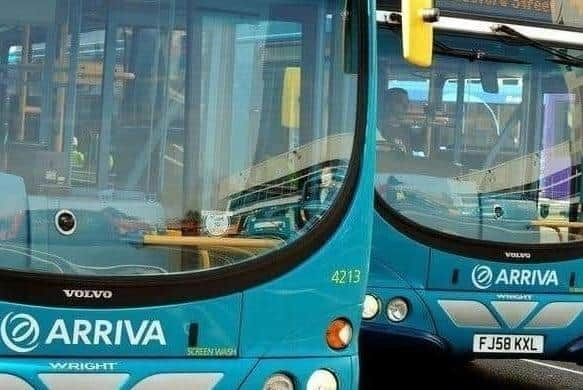Plan to tackle 'incredibly disruptive' bus driver shortage in Yorkshire announced
Operators across the region have been forced to cancel hundreds of services in recent months because they cannot recruit and retain enough drivers.
South Yorkshire Mayoral Combined Authority (SYMCA) described the cancellations as “incredibly disruptive” but said people are reluctant to take on the job because it is seen to offer relatively low pay and unsociable hours.
Advertisement
Hide AdAdvertisement
Hide AdThe organisation, which is run by South Yorkshire Mayor Oliver Coppard, also said a number of drivers quit to work in the haulage industry over the last year and earn higher salaries.


It is planning to invest £385,000 of taxpayers’ money in a scheme that will help operators recruit and retain drivers from April next year.
The scheme will aim to ensure at least 250 people take part in a programme to learn more about the role and 60 per cent of them then progress to training. Another 50 will take part in training programmes with smaller local bus operators.
Similar schemes in West Yorkshire and the North East have “achieved significant success”, according to SYMCA.
Advertisement
Hide AdAdvertisement
Hide AdIt comes after passengers were warned more services could be cut next year, as operators like Stagecoach and First Bus have seen the number of paying passengers plummet and they are now struggling with inflation and rising fuel costs.
Figures released by SYMCA show the number of cancellations more than doubled between 2021 and 2022, rising from 8,304 to 23,986.
Over the period, the number of services which ran also fell by 18 per cent, to 838,969, and one in five bus journeys were not running on time.
The Government recently extended a £2bn pandemic support scheme, which provides operators with money to prevent them from cutting services, until March.
Advertisement
Hide AdAdvertisement
Hide AdMr Coppard’s office said that when the scheme ends, it will need to provide operators with more than £1m a month of taxpayer cash to prevent them from cutting services that are not profitable.
He is also waiting on the outcome of an assessment which will look at whether buses should be brought back under public control.
In his election manifesto, the Labour mayor said he will “work every day to bring the buses back into public control, where they belong”.
SYMCA had drawn up a Bus Service Improvement Plan, which aimed to make services more frequent, more reliable and more affordable.
Advertisement
Hide AdAdvertisement
Hide AdIt applied for at least £430m of funding to support this plan from the Department for Transport, but was told in April it will receive nothing, because its bid lacked ambition.
Downing Street announced that almost £1.1bn will be provided to support bus service improvement plans in 31 areas of the country, including two in Yorkshire.
West Yorkshire submitted a bid for £168m, but was been given £70m. While York Council wanted £48m and got £17.4m.
It came after then-Prime Minister Boris Johnson announced £3bn last year for a “bus revolution” outside London that aims to end to the “fragmented, fully commercialised market”.